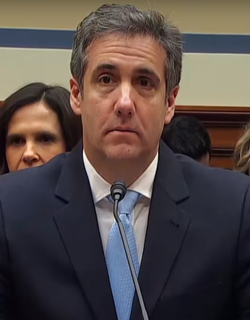A Quote by Sepp Blatter
Any country if you go really, really in depth somewhere, the human rights are not totally respected.
Related Quotes
Let's not use the term democracy as a play on words which is what people commonly do, using human rights as a pretext. Those people that really violate human rights [the West] violate human rights from all perspectives. Typically on the subject of human rights regarding the nations from the south and Cuba they say, "They are not democratic societies, they do not respect human rights, and they do not respect freedom of speech".
The notion of human right builds on our shared humanity. These rights are not derived from the citizenship of any country, or the membership of any nation, but are presumed to be claims or entitlements of every human being. They differ, therefore, from constitutionally created rights guaranteed for specific people.
I believe we should try to move away from the vocabulary and attitudes which shape the stereotyping of developed and developing country approaches to human rights issues. We are collective custodians of universal human rights standards, and any sense that we fall into camps of "accuser" and "accused" is absolutely corrosive of our joint purposes. The reality is that no group of countries has any grounds for complacency about its own human rights performance and no group of countries does itself justice by automatically slipping into the "victim" mode.
What art should be about,' they will say, 'is revealing exquisite and resonant truths about the human condition.' Well, to be honest - no, it shouldn’t. I mean, it can occasionally, if it wants to; but really, how many penetrating insights to human nature do you need in one lifetime? Two? Three? Once you’ve realised that no one else has a clue what they’re doing, either, and that love can be totally pointless, any further insights into human nature just start getting depressing really.
This, then, is the truth of the discourse of universal human rights: the Wall separating those covered by the umbrella of Human Rights and those excluded from its protective cover. Any reference to universal human rights as an 'unfinished project' to be gradually extended to all people is here a vain ideological chimera - and, faced with this prospect, do we, in the West, have any right to condemn the excluded when they use any means, inclusive of terror, to fight their exclusion?
The UN Declaration of Human Rights laid down what any person might reasonably expect, yet there are remarkably few people who enjoy these rights. With cameras in the hands of activists and meaningful distribution of those images, we will witness what really goes on in this world and hopefully want to change it.









































